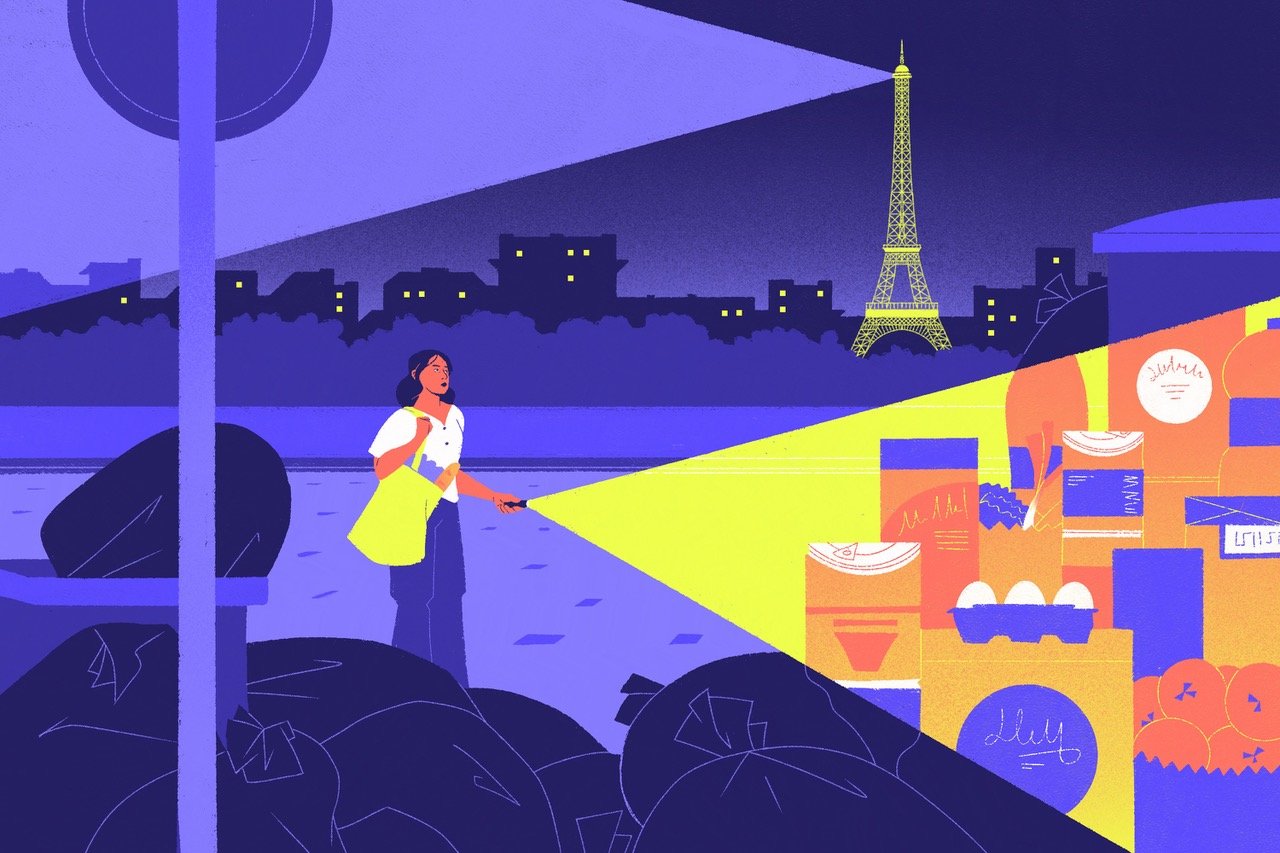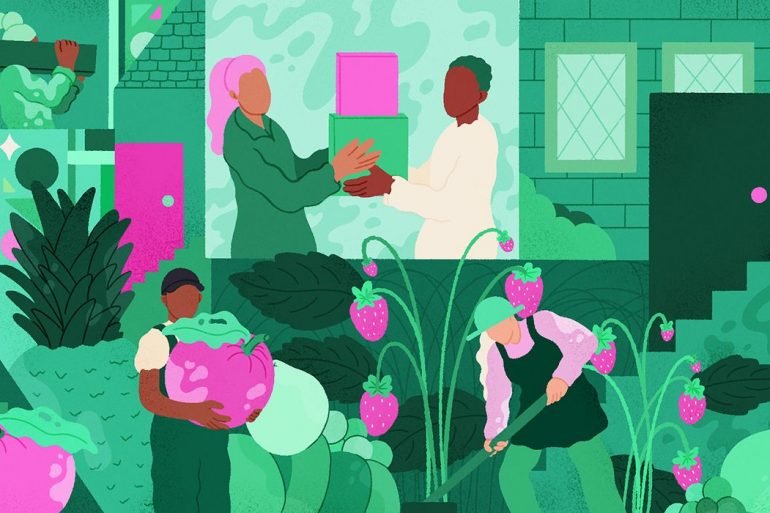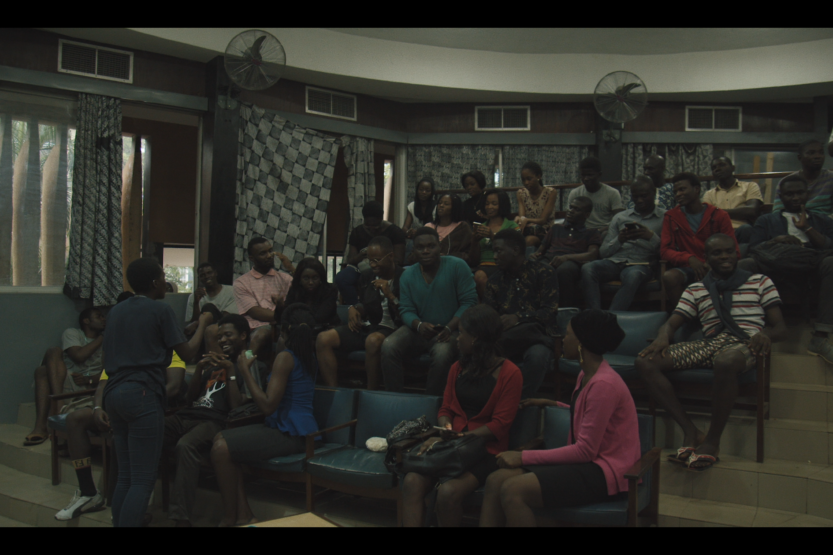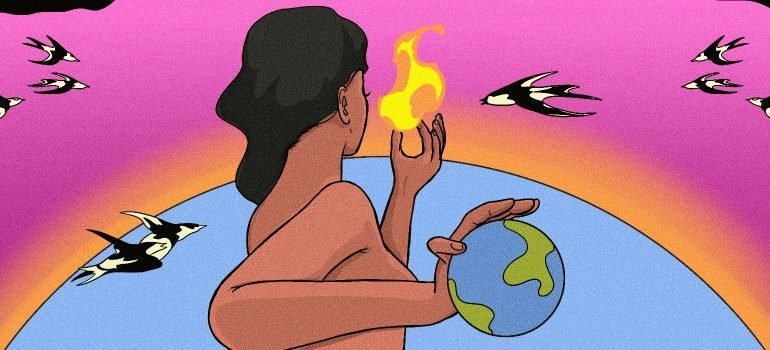The first thing I see when I return to Paris is the slumped figure of a person rooting through the trash. Before them gleams the doors of a Franprix supermarket. The person, an anonymous ‘dumpsterdiver’, has a shopping caddie open beside them. They rummage and select – a piece of fruit, a bag of flour, perhaps, tossed into the steadily rising caddie. It’s a good haul, full of food that otherwise would have rotted in a landfill.
A jolt of nostalgia warms me. I dumpster-dove for years before circumstance made me lose the habit. Who is this person scavenging for food? Who will they feed with their trash-picked bounty? Is this their regular spot, are they a regular diver? Or did they stumble into the bins at the right place and time, and decided to take a peek?
One man’s trash is another man’s treasure
Dumpsterdiving is likely not the first thing that comes to mind when someone mentions Paris. The City of Lights, gastronomy capital of the world, is home to some of Europe’s wealthiest billionaires and their luxury brands, like Bernard Arnault and his LVMH empire.
Paris is a place of consumption, but some of that material wealth trickles down into the bellies of ordinary people. Think eclairs belong in the bakery? I’ve harvested those puffy pastries by the crateful. Dumpsters are full of them in the holiday season. Foie gras, Yule logs, and crisps have found their way to my kitchen, as well as ordinary food, seasonal fruit and veg.
After growing up in Global Majority countries, the wealth and waste of this colonial superpower was disconcerting. I didn’t lose time sharing the goods I had rescued – my dad, gran, and a large number of friends have eaten what some call ‘freegan’ food – a word play on ‘free’ and ‘vegan’ used to describe dumpsterdoven food. Redistribution is common within the freegan community.
Le Freeganisme
French people call dumpsterdiving for food ‘recup alimentaire’, food recovery. Those who practice it may refer to themselves as ‘glaneurs’, foragers, or the more anglophone term of ‘freegan’. My early years of dumpsterdiving brought me to a plethora of Facebook groups for such folk, some radical environmental activists who humorously termed themselves “rock-lickers”. These groups are a place to share photos of the night’s ‘recup’, or haul, give advice, and even trade surplus food. Here, shy beginners might try to assemble a group to go dumpsterdiving together, and more engaged freegans will share articles about state-scale waste management.
People have a hard time believing so much food waste exists. Of course, it is normal to be dubious until you have seen the sheer piles of discarded food with your own eyes. It is documented, however, that a third of the food we produce globally is wasted. If food waste were a country, it would be the biggest emitter of greenhouse gases after China and the United States.
France, however, has been celebrated as a leader in combating this issue. In 2016, nearly a decade ago now, the country passed a law to ‘ban food waste’, a move that was lauded internationally. ‘Grande surfaces‘, food-chains exceeding 400m², were legally required to donate food to charity and formally prohibited from pouring bleach on their bins – something many chains used to do to deter foragers. They also benefited from a preexisting tax break in exchange for the donation. Spokespeople around the world urged their own countries to follow the French example. Yet in reality, the law is much more fallible than it seems.
Gold medal for effort
More recently, the Paris 2024 Olympics were saluted for their sustainability efforts. The committee’s huge reduction of food waste was a highlight, with the Olympian press announcing that over 300 tons of food products were donated from the Olympic Village to a variety of food banks. At the same time, leaders of NGOs receiving these donations took the opportunity to comment on the increasing demand of donations. It had been a dark year for many associations scrambling to meet the needs of beneficiaries, the number of which had to be cut down in order to stay afloat.
Rising inflation, like in many countries globally, has hiked up the cost of living. French data company INSE reported that 37% of the French population live in a situation of food poverty – a percentage that has tripled since the passing of the food waste ban in 2016.
On one of the freegan Facebook groups, a dumpsterdiver posted: “The [bank] is empty and so is the fridge. Any leads for diving spots in Paris?” Another person wrote, “We’re poor and we sometimes go three weeks without eating..” I learned from this post that as well as distributing dumpster-dived food to their friends and family, a big haul would go to the diver family’s freezer or into preserves, keeping them fed for a long time.
A few others have opened up on their struggles in the group; some desperate for advice on dumpsterdiving. It is a new and daunting practice for many who have heard of freeganism on social media – daunting not least because of the stigma of being seen doing something perceived as ‘dirty.’ A large number of divers are also simply in it out of conviction, but many are nudged by a stint of unemployment or the struggles of being a student.
Revisiting the waste ban
The 2016 law on food waste was criticised for its lack of reinforcement. A PBS report came out in 2019 evaluating the effectiveness of this law – very few fines had been applied to stores that bent their rules, and it was easy to donate sub-quality produce and still get the tax-break, which had been in effect before the ban anyways. It was at this time that I started dumpsterdiving myself, so I can personally attest to the plentifulness of freegan food available then.
How would the law protect people’s access to food in the long term anyway? A paper by the EU Circular Economy Stakeholder Platform cast doubt on whether the law would truly contribute to social justice in the long run, suggesting it might establish competition with businesses and charities. Its editors recommended a “call for a circular society instead of a circular economy.”
The law came up short in other ways; my freegan compatriots reported finding bleach-doused food even though it was now illegal. Because the law applied only to ‘grande surfaces’ (warehouse-sized stores larger than 400m²), most of the stores we rescued from as freegans were too small to be accountable for the donation requirement. Within minutes of opening the bags, we had a full caddie to take home.
People don’t realise how much of the food that is thrown away by the industry is perfectly edible. It’s not uncommon for dumpsterdivers to find food that hasn’t even reached its expiration date – an entire carton of eggs might be thrown out simply because one of the shells is cracked; same for a pack of sodas where one can is dented. Broccoli might have yellowing edges that most people at home would simply slice off, but it is not permitted to be sold in the shop.
Studies show that expiration dates can be anywhere from meaningless to even harmful. Food safety writer Dr. Hatem El-Nagar calls these numbers a scam by corporations to drain consumer wallets. But dumpsterdivers believe in common sense – look, smell, and taste. Most divers report that they’ve eaten ‘trash’ food for years and never gotten sick. Not to mention, they’ve made enormous savings.
New tastes, new faces
Dumpsterdiving brings the added advantage of discovery. When you dumpsterdive, you need to be inventive. A diver can find themselves with a pot of yoghurt and five kilos of oranges. Sometimes you get variety; sometimes you get an heirloom vegetable you’ve never heard of. One dive at my usual organic store produced an armful of purple cauliflowers that I never would have paid the bougie price for.
That evening, I baked a cheesy purple casserole – it was bubbly and delicious. Freeganism has pushed me to make cheese, jam, and all kinds of pickled things I hadn’t thought to try before. This resulted in the creation of my freegan Instagram account, which among other things captures images of trash hauls and resulting meals, as well as stories of people I met along the way.
Divers come from all sorts of backgrounds. I befriended a man in my neighbourhood with a husky who passed along some duck breast he’d found. What a great dinner that turned into! There were elders with small pensions trying to save money. One man remarked that he earned less than 300 euros each month – nothing to live on in this economy. Another retired woman told me, “I want to be able to eat and still afford presents for my grandkids.”
Subscribe to shado's weekly newsletter
Exclusive event news, job and creative opportunities, first access to tickets and – just in case you missed them – our picks of the week, from inside shado and out.

I met Asians like myself, a retired couple with their granddaughter, in a stroller. They would set the baby aside and start sifting through the vegetables alongside me. I met students, dreadlocked hippies, expats from Brazil and Spain, regulars, first-timers, and homeless people, and refugees.
Most divers are sharers – we’d each be looking through a bag, calling out things like “I’ve got five kilos of potatoes here, any takers?” or “I’m not taking all this cheese” and “I’d be keen for some bread if you spot any”. Other divers were more wary, highly dependent and territorial of the food that was tossed.
United in need
On one occasion, a van pulled up to one of my regular supermarket spots near my school at five o’clock, exactly as an employee was rolling out the dumpsters. I was waiting with my caddie alongside other divers, and one of them recognised the van with surprising animosity.
A man and a woman came out. They made several trips, grabbing as many of the bulging bags as they could. Within minutes, the bins were empty and they drove off to the next joint. A diver of my age explained that the man and woman, who were Romani, had an entire camp of refugees to feed. They scouted the city for food, clothes, toys, and electronics to meet their needs. One of the other divers, the older white man who had grumbled earlier, was still gloomy, choosing to interpret the newcomers’ desperation as greed.
This prejudice was patterned in the Facebook groups, which were definitely more exclusively used by white French-speaking divers. A few posts were scornful about Romanis and other groups who regularly took entire food hauls to themselves – not acknowledging the very different contexts in which they were dumpsterdiving. In one post, a diver complained about his usual spot being ‘looted’ with no remains, except, he remarked snidely, for all the pork products that were left untouched. A couple of Islamophobic and anti-immigrant comments followed under that post, though other members of the group responded in disagreement. The post has since been deleted.
Reading these, I thought again of the incident with the Romani couple and their van. How my diver ‘colleague’ stalked away with his empty caddie. There were maybe five of us who saw each other regularly at that supermarket. We knew each other by face, if not by name, from the times we’d stood outside the store together at 5 o’clock, making small-talk and waiting.
Maybe we were trash-picking purely for the principle – or perhaps it was really the only way to feed ourselves through the week – but none of us really knew what the other was struggling with. Presumably, we had all the privileges of French citizenship, or at least a common language through which to relate to each other. These Romani refugees had been isolated into camps on the outskirts of Paris by the dysfunctional asylum system, without status, without the language of accessibility, and with many more mouths to feed.
Everyone needs to eat. And here we all were, divers from both sides, in the City of Lights, fighting over trash.
Put a lid on it
People who saw us diving generally looked away, uncomfortable. Some were more confrontational, suspicious even at what we might possibly be doing rooting through the bins. But why should we feel self-conscious when we are defying the rules of a wasteful society, in a time where food insecurity is so rife? Why would I go for yet another five-euro burger deal, or save pennies on beans and rice, when I can pick and choose from a selection of organic produce at my local Naturalia’s bins? Even initiatives like TooGoodToGo, which allow you to reserve a bag of about-to-expire groceries at a fixed lower price, are brilliant, but with last-minute order cancellations and underwhelming results, they can be a mixed bag.
In a time of climate change, geopolitical-induced food shortages and rising food poverty, most will agree that food waste is fundamentally illogical and unnecessary. It says a lot about France that such goods are squandered, despite the surface-level food-waste ban.
I volunteered one summer on a self-described ‘anarchist farm’ in Brittany, where a man named Lomig and his friends had installed a clay-house, a yurt, a greenhouse, an orchard and a vegetable patch. There was a small herd of goats from which he cultivated cheese and yogurt. He had dry toilets and a single solar panel to play CDs and charge visitors’ phones, and washed himself with water from a nearby stream.
“I used to dumpsterdive when I was your age,” he told me. “But I got tired of eating everyone’s leftovers. Why should I look through the trash for products full of [GMOs and plastic], when I can grow all this myself and know exactly what I’m putting in my body?”
In a solarpunk future, everyone can access sustainable and nutritious food in full dignity. No-one needs to be stigmatised for looking through society’s remains, because every crumb we produce is honoured. We recognise that light, water, soil, fuel, and other resources made our meal possible, and it didn’t simply materialise into being. In the meantime, we dumpsterdive to show how stunted the system is. Freegans are out here in the streets, for everyone to see.
What can you do?
Read:
- Robin Greenfield’s Guide to Dumpster Diving
- Food Freedom Book by Robin Greenfield
- Freeganism: What, Why, And How? – by Timothy Peters
- I Spent a Week Only Eating From Food-Waste App by L. Dodgson
- Flipping the table: The role of food in resisting the right
- Why we need creativity and humanity in our prison food
Listen:
- Anna Sacks is a waste expert focused on passing waste legislation in NYC and raising consciousness on social media. Listen to Digging through NYC’s trash to uncover food waste
Watch:
- Food waste is the world’s dumbest problem
- The Gleaners and I – ‘Agnès Varda’s essay portrait of society’s scavenger-recyclers’
Discover:
- Find out more: Freegan Visions
- Check our r/freeganism on Reddit
- My Freegan Instagram account
- Dumpster Delights













